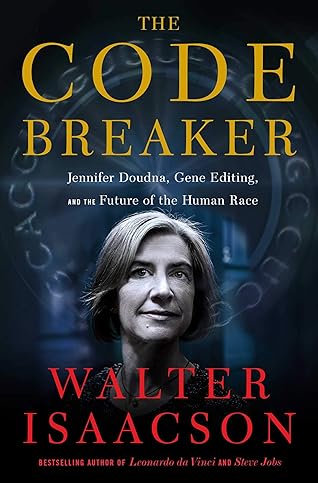More on this book
Community
Kindle Notes & Highlights
Read between
April 16 - April 24, 2022
Treatment vs. enhancement
One must be a fanatic believer in salvation through suffering to think that any good comes from its existence.
In addition, prospective parents often want to have a genetically related child.
just vanity?
most parents would feel it is reasonable.
nothing has been altered except the elimination of the horrific mutation.
So should it be permissibl...
This highlight has been truncated due to consecutive passage length restrictions.
so, what other genetic problems should parents have the right to prevent
Because this slope is slippery, let’s take it step by step.
Using gene editing to prevent disabilities may make society less diverse and creative. But does this give governments the right to tell parents they can’t use such technologies?
Would it be different if, instead of using a deaf sperm donor, the couple had used preimplantation diagnosis to select an embryo that had the genetic mutation for deafness?
that are true disabilities and ones that are disabilities mainly because society is not good at adapting for them?
The disadvantages from being deaf, for a human or any other animal, are very real. In contrast, any disadvantages to being gay or Black are due to social attitudes that can and should be changed.
The MSTN gene
Do we go from admiring the diligence of the athlete to admiring instead the wizardry of their genetic engineers?
almost every champion runner has what is known as the R allele of the ACTN3 gene.
fast-twitch muscle
Most of us would think so.
way to wrestle with these questions is by making a distinction between “treatments” and “enhancements.”
the difference between an absolute improvement and a positional improvement.
absolute good.10 That doesn’t answer the question of whether we should allow genetic enhancements.
factor we should consider: favoring enhancements that would benefit all of society over those that would give the recipient a positional advantage.
DARPA,
DARPA already has a project going, in conjunction with Doudna’s lab, to study how to create genetically enhanced soldiers.
we should consider whether there might be some cost to society, even to civilization.
this point in our deliberations, we have to face the potential conflict between what is desired by the individual versus what is good for human civilization.
Does the good life entail making a contribution to our community, society, and civilization? Has evolution encoded such goals into human nature?
cognitive skills such as memory, focus, information processing, and perhaps even someday the vaguely defined concept of intelligence.
all the complex components that go into human intelligence, wisdom may be the most elusive.
Understanding the genetic components of wisdom may require us to understand consciousness,
“What a mistake,” tweeted Paul Knoepfler, a cancer researcher and bioethicist at the University of California, Davis.
trivialize idea of designer babies?”
also raised the question of who should get to decide how gene-editing tools should be used.
individual rights,
John Locke and other Enlightenment thinkers
as long as they do not harm others.
The contrasting perspectives are those that view justice and morality through the lens of what is best for the society and perhaps even (in the case of bioengineering and climate policy) the species.
can take the form of more complex social contract theories, in which moral obligations arise from the agreements we would make to form the society we want to live in.
On the other side are those who wish to promote the common good, create benefits for all of society, minimize the harm that an untrammeled free market can do to our work and environment, and restrict selfish behaviors that might harm the community and the planet.
John Rawls’s A Theory of Justice, which comes down on the side of favoring the good of the community,
In his book, this leads Rawls to justify genetic engineering only if it does not increase inequality.
Nozick,
he argues that social rules should arise through the voluntary choices of individuals.
The dark side of our new information technology is not that it allows government repression of free speech but just the opposite: it permits anyone to spread, with little risk of being held accountable, any idea, conspiracy, lie, hatred, scam, or scheme, with the result that societies become less civil and governable.
the danger of genetic technology might not be too much government control. Instead, it may be too much individual control.
Now, however, we may be ushering in a new eugenics—a liberal or libertarian eugenics, one based on free choice and marketed consumerism.
Why do we have to convene ethics conferences, seek a broad societal consensus, and wring our collective hands? Isn’t it best to allow the decisions to be made by me and you and other individuals who want the best prospects for our kids and grandkids?9
don’t see why eliminating a disability or giving a kid blue eyes or adding fifteen IQ points is truly a threat to public health or to morality,” says Doudna’s friend George Church, the Harvard geneticist.10
Julian Savulescu,


